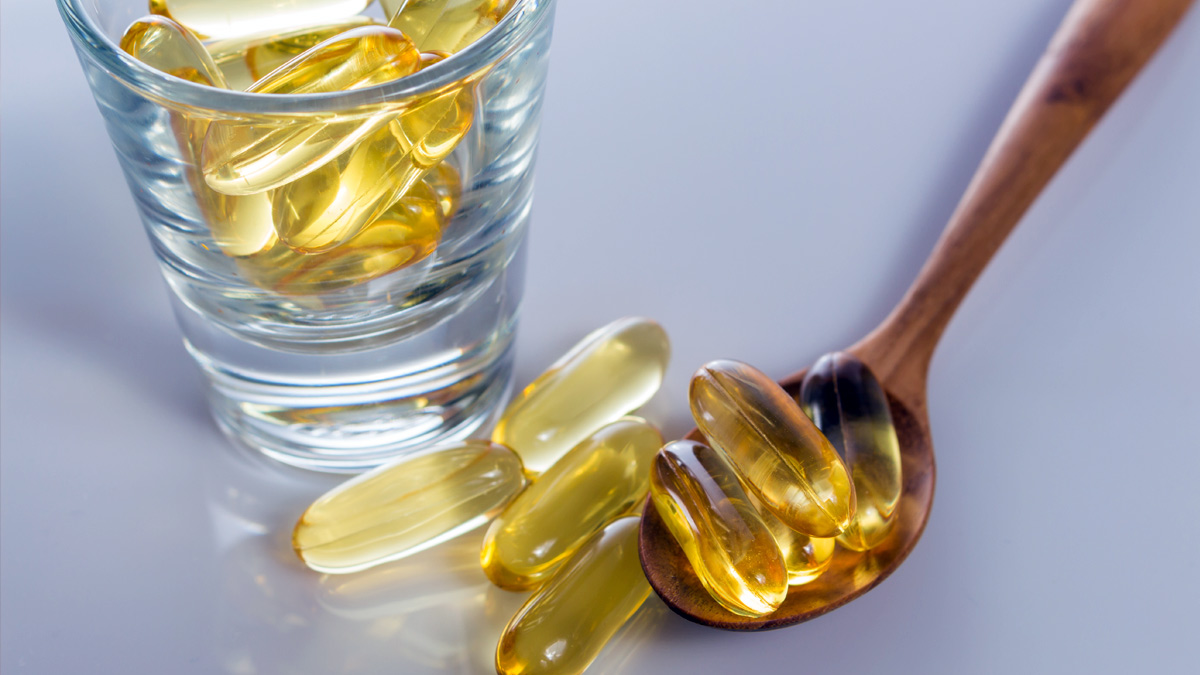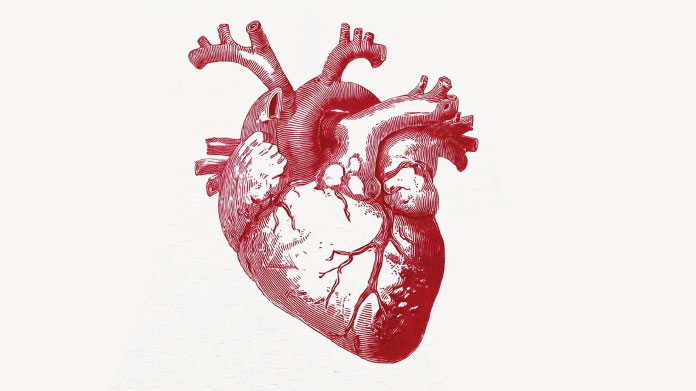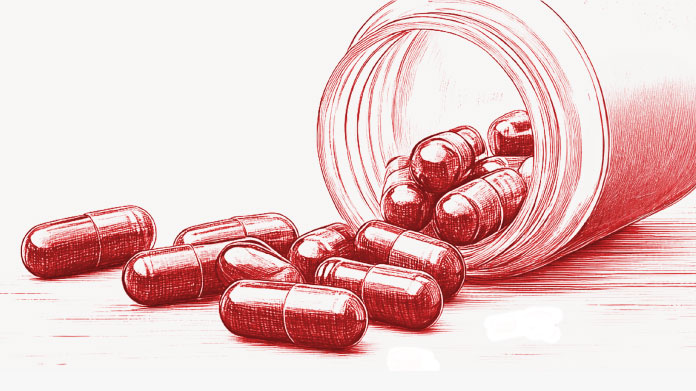Co-enzyme Q10 or Ubiquinol: which is best for reducing the risk of a cardiovascular event?
Which is more effective – coenzyme Q10 or ubiquinol?

Co-enzyme Q10 (also known as ubiquinone) is converted in the body into an active form called ubiquinol. That’s the difference – one is an inactive form and the other an active one.
So what does that really mean? If you were to take 200mg a day of CoQ10, you would increase your ubiquinol blood levels by around 60% (according to research published in 2018) (1). If you were to take the same amount of ubiquinol, those same levels would rise by 150%! A previously-conducted study came to the same conclusion (2).
In other words, both substances will produce increased blood levels, but ubiquinol is the more effective of the two.
This is due to ubiquinol’s superior bioavailability (co-enzyme Q10 is not 100% absorbed in the gut) and the rate at which CoQ10 is converted (only 90% is estimated to be transformed in the body into ubiquinol). Unsurprisingly, this superiority comes at a price: co-enzyme Q10 supplements are usually less expensive than ubiquinol supplements …
What is ubiquinol’s role in the body?
Ubiquinol is a valuable antioxidant compound which is used to create energy in most of the body’s cells. It is produced in the heart, liver, kidneys and pancreas, and is then carried throughout the body.
The body’s production of ubiquinol is disrupted by taking statins, as well as by cardiac disease and aging. In actual fact, blood levels of co-enzyme Q10 increase up to the age of 60 and it’s only in the brain and in heart tissue that they diminish over time. More importantly, there’s also an age-related decline in the rate at which co-enzyme Q10 is converted into ubiquinol!
So as we get older, we have decreasing levels of ubiquinol, a decline which has been directly linked to increased oxidative stress (3-4) (which is itself a factor in almost all ‘modern’ diseases). And since coQ10 is virtually absent from our diet (apart from tiny amounts in beef and chicken), supplements represent the best way of increasing ubiquinol levels.
Research has shown that coQ10 and ubiquinol play a role in a number of physiological effects:
- Reducing the risk of cardiovascular events (by up to 50% according to one study).
- Improving the way the heart pumps blood (ejecting the blood in a heart chamber requires significant energy and thus considerable amount of ubiquinol) (5).
- Helping to treat heart failure and hypertension.
- Improving various everyday issues such as fatigue, wheezing, resistance to exercise, headaches, etc.
- Lowering cholesterol levels (one study showed a daily dose of 120mg of coQ10 over six months resulted in reductions of 7% in LDL-cholesterol and 21% in triglycerides) (6).
- Reducing muscle wasting.
- Improving vitality.
Note: It takes around three months’ supplementation before the first effects appear (7).
Things to know before taking CoQ10 and Ubiquinol
As these two compounds are fat-soluble, it’s important to take them with a meal rich in fatty acids (generally lunch), or better still, to choose supplements that contain optimal levels of fatty acids ( Coenzyme Q10 30 mg and Ubiquinol™ 100 mg).
Taking them with food also slows down intestinal transit, leaving more time for the CoQ10 and Ubiquinol to be absorbed in the small intestine. The doses used in clinical trials vary from 50mg to 200mg a day, ideally spread over two or three doses.
References
- Zhang Y, Liu J , Chen XQ , Oliver Chen CY ., Ubiquinol is superior to ubiquinone to enhance Coenzyme Q10 status in older men. Food Funct. 2018 Nov 14;9(11):5653-5659. doi: 10.1039/c8fo00971f.
- Langsjoen PH, Langsjoen AM. Comparison study of plasma coenzyme Q10 levels in healthy subjects supplemented with ubiquinol versus ubiquinone. Clin Pharmacol Drug Dev. 2014 Jan;3(1):13-7. doi: 10.1002/cpdd.73. Epub 2013 Oct 8.
- Niklowitz J et al, Coenzyme Q10 serum concentration and redox status in European adults: influence of age, sex, and lipoprotein concentration, J Clin Biochem Nutr. 2016 May; 58(3): 240–245.
- Claessens et al, Rapid and sensitive analysis of reduced and oxidized coenzyme Q10 in human plasma by ultra performance liquid chromatography-tandem mass spectrometry and application to studies in healthy human subjects, Ann Clin Biochem. Author manuscript; available in PMC 2017 Mar 1.
- Fotino et al. Effect of coenzyme Q₁₀ supplementation on heart failure: a meta-analysis, Am J Clin Nutr. 2013 Feb;97(2):268-75. doi: 10.3945/ajcn.112.040741. Epub 2012 Dec 5.
- Zhang, et al. Treatment of coenzyme Q10 for 24 weeks improves lipid and glycemic profile in dyslipidemic individuals, Journal of Clinical Lipidology, Volume 12, Issue 2, March–April 2018, Pages 417-427.e5
- Nattagh-Eshtivania et al, The effect of Coenzyme Q10 supplementation on serum levels of lactate, pyruvate, matrix metalloproteinase 9 and nitric oxide in women with migraine. A double blind, placebo, controlled randomized clinical trial
Keywords
1 Days
Quick shipping
Quick shipping; good price. No issues!
Mary McCarty
2 Days
Thr product is very good and is helping…
Thr product is very good and is helping me on my health. Then is always on time
LUGO Luz
5 Days
Buying was fine
Buying was fine. I had problems with the website not recognizing my login info, and had to call to get it fixed. Other than that, everything was good.
David S. Clark
5 Days
Your super maca and super ginseng are…phenomenal
Your super maca and super ginseng are phenomenal supplements that compliment each other when taking them together. Fantastic feeling of well-being and lots of mid day energy without the crash.
Keith Mason
8 Days
I have had amazing results with every…
I have had amazing results with every supplement I've purchased. I am extremely satisfied with this company
kirstin Torres
8 Days
Fine products
Fine products . They are on the leading edge of online supplements. The only issue -so far-is they sometime run out of subscription items.
Jason Argos
11 Days
The ordering process is very user…
The ordering process is very user friendly and the products always come in a timely manner.
CARTER Rhonda
12 Days
The price for Dr
The price for Dr. Pero's AC-11 is reasonable and in line with his views. (my former colleague). Keep it pure.
CAMPBELL Clayton
14 Days
Right on every time.
Right on every time.
Arthur Nicholas
17 Days
They are cheaper than everyone else and…
They are cheaper than everyone else and the shipping was fast. Great company.
Patricia Adams
24 Days
Availability of quality health…
Availability of quality health supplements and it's wide variety is impressive. Ordering is seamless and shipping even during the holidays is well streamlined.
Mohamad Hussein
38 Days
A Product worth waiting for when not…
A Product worth waiting for when not available and then arriving as a surprise!
DOMINIC
40 Days
On time shipping
On time shipping
GEORGE Verne
42 Days
Ordering was easy and the product was…
Ordering was easy and the product was delivered with no problems. Appreciated that I was notified when it would arrive. Thanks!
MascarC
47 Days
Great customer service - responsive …
I ordered from them and my item was unavailable for sometime. I was super happy when they reactivated my order and shipped my item which arrived very quickly. Great customer service.
Ruth Rueter


.jpg)
